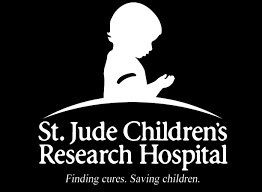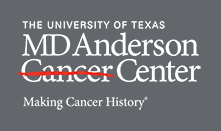The mission of the IWSA is to "Promote Awareness, Stimulate Research, and Support Families affected by WAGR syndrome.
What does it mean to "stimulate research"? While the IWSA does not fund research directly, it does make research happen by:
Exciting examples of stimulating research involve collaborations with several researchers who attended both the 2016 Wilms Tumor Symposium and the 2018 Conference on Wilms Tumor in WAGR Syndrome. Both of these scientific meetings, held in Ann Arbor, Michigan, were attended by international Wilms tumor experts and IWSA parents. The meetings focused on gaps in knowledge about Wilm tumor in WAGR syndrome and creating research projects.
As a results of these meetings, research projects are now underway at St Jude Children's Research Hospital in Tennessee and at MD Anderson Cancer Center in Texas.
Conference discussions lead to new research at St Jude Children's Research Hospital

Andrew Murphy, MD, Chief, General Pediatric Surgery Division at St Jude, explains how his project came about: "The main idea for the project was derived from discussions that occurred during the first and second WAGR meetings I attended. In particular, I found the fact that WAGR patients have a greater than 50 percent risk of developing Wilms tumor, but never develop anaplastic Wilms tumor to be an intriguing observation."
Dr Murphy further explains, " I took a broader look at Wilms tumor and determined that tumors with WT1 mutation do not develop analpasia in general and WT1 and TP53 mutations do not occur in the same pediatric cancer patient tumors of any histology. Therefore, we hypothesized that WT1 mutations and TP53 mutations in the same Wilms tumor cell could be lethal events to the cancer cell. The grant I applied for aims to explore this potential relationship and exploit it for therapy."
In later December 2020, the IWSA received the following message from Dr Murphy: "I just wanted to let you know that I received news today that my National Cancer Institute, National Institutes of Health Grant will be funded for the next five years. This is one of the grants for which you both [IWSA Director of Research Kelly Trout and Executive Director Shari Krantz] provided a letter of support. I want to thank you again for your backing and collaboration."
Research back on track at MD Anderson Cancer Center

Vicki Huff, PhD, and Jeffrey Dome, MD, PhD, also attended both scientific meetings and collaborated to create an innovative research project that is underway at MD Anderson Cancer Center in Houston, Texas.
The Wilms tumor mouse project was delayed for a short time due to COVID-19, however, it is now back on track and moving forward.
Dr Huff is leading this project to study the effects of a medication that could prevent the development of Wilms tumor in children with WAGR syndrome. She reports that breeding is going much better now, and in late summer of 2020, her team was able to start putting animals in the treatment group. When asked what is next, Dr Huff replied, "....to keep breeding treatment cohorts [groups of mice]. At some point we will carry out a preliminary analysis of the data once the animals have aged more and when we have more animals that have developed tumors."
The IWSA provided letters of support to Dr Huff in her successful efforts to secure funding for the next phases of this cutting edge research.
Sign up for News & Events
COPYRIGHT© 2025 IWSA / International WAGR Syndrome Association
